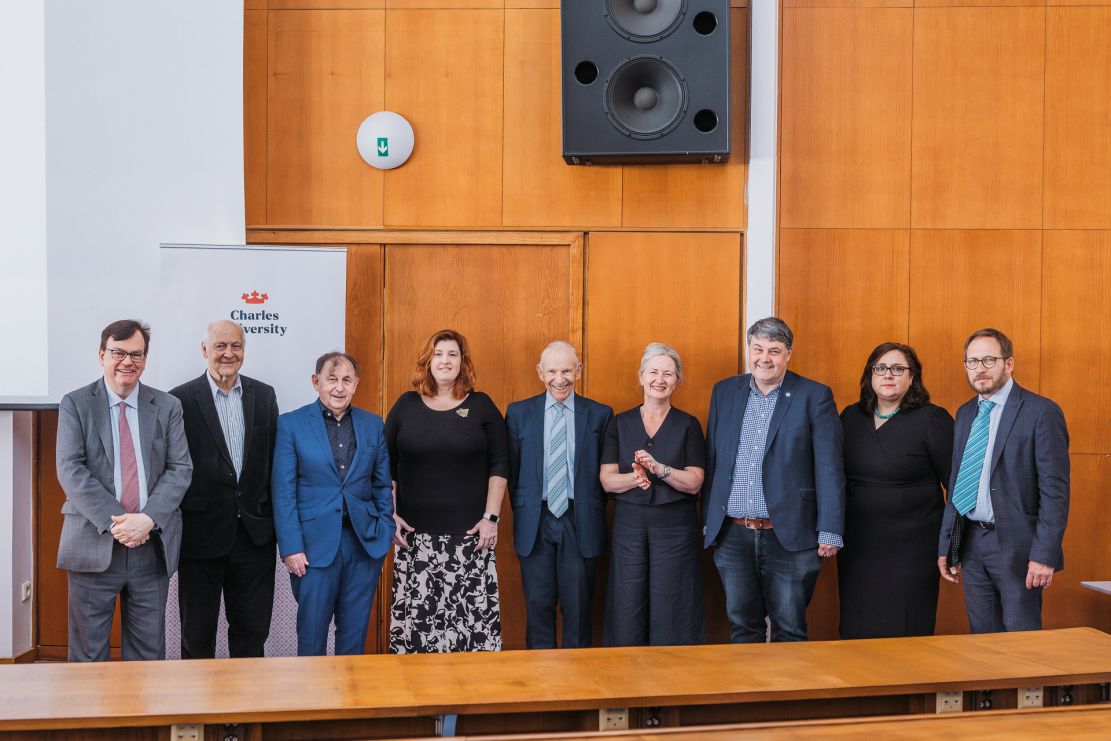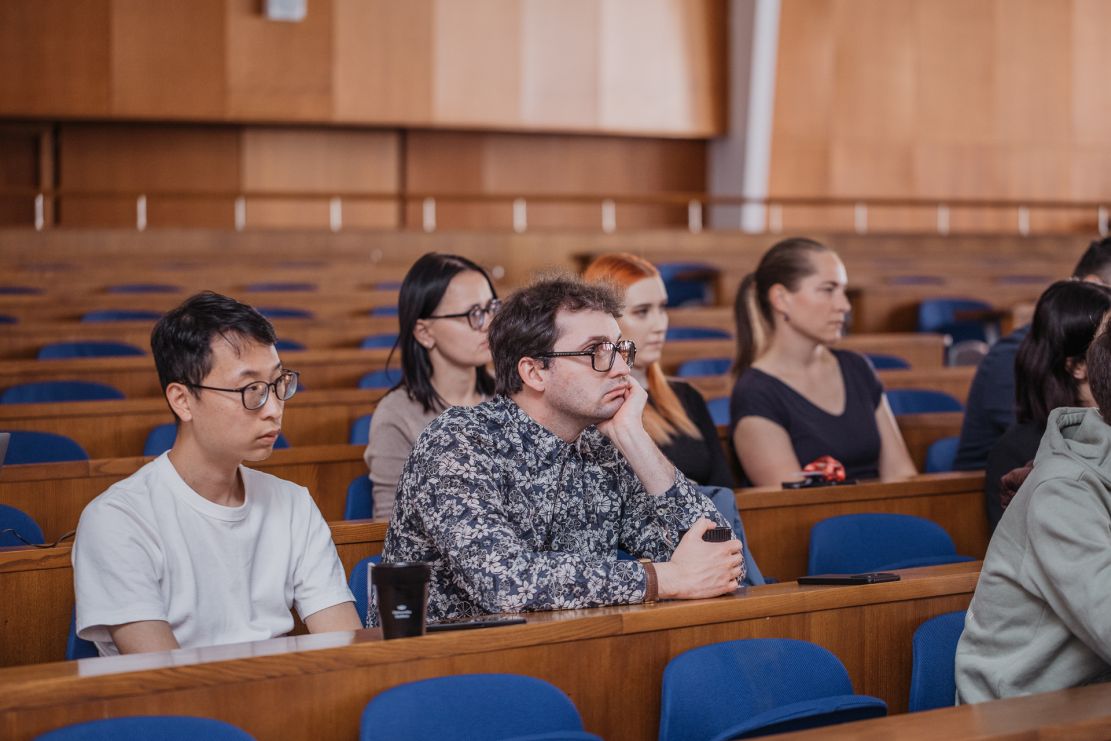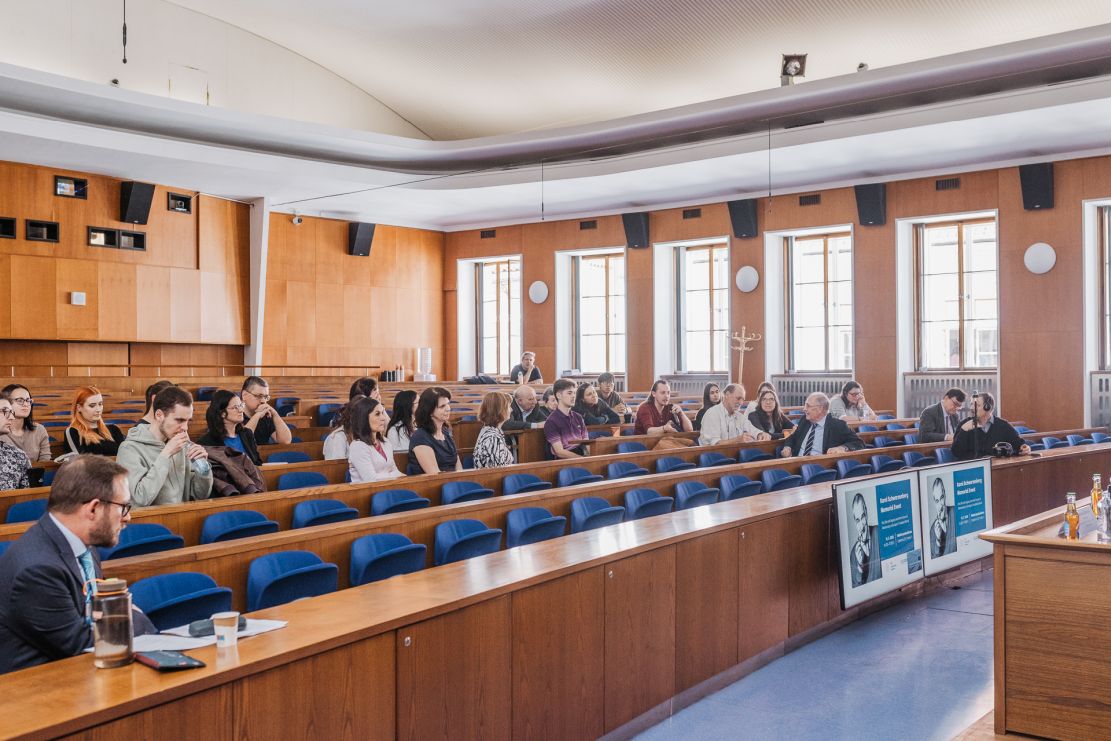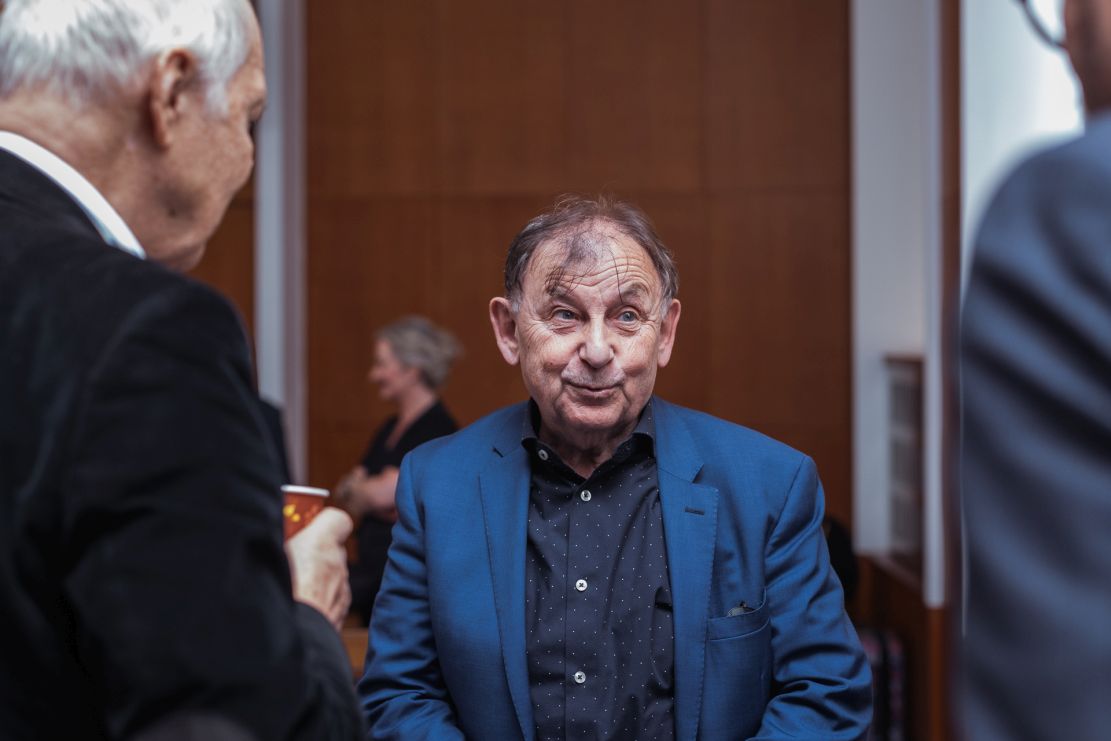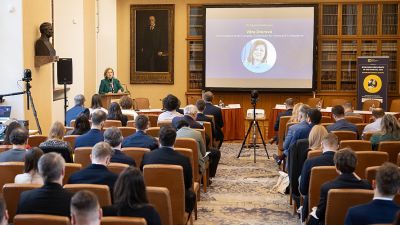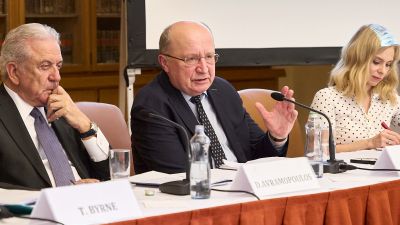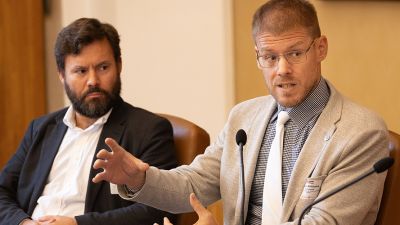In an era marked by rising geopolitical tension and increasing challenges to democratic norms, Charles University hosted a conference on 13 May to reflect on the legacy of the late Karel Schwarzenberg. Held in the Blue Auditorium, the event was hardly an academic exercise but a timely exploration of the values championed by the former foreign minister and MP—and how they resonate in today’s world. His legacy was remembered by guests who knew him well, including former ambassador to London Michal Žantovský, respected political scientist Jacques Rupnik, and historian and Guardian commentator Timothy Garton Ash.
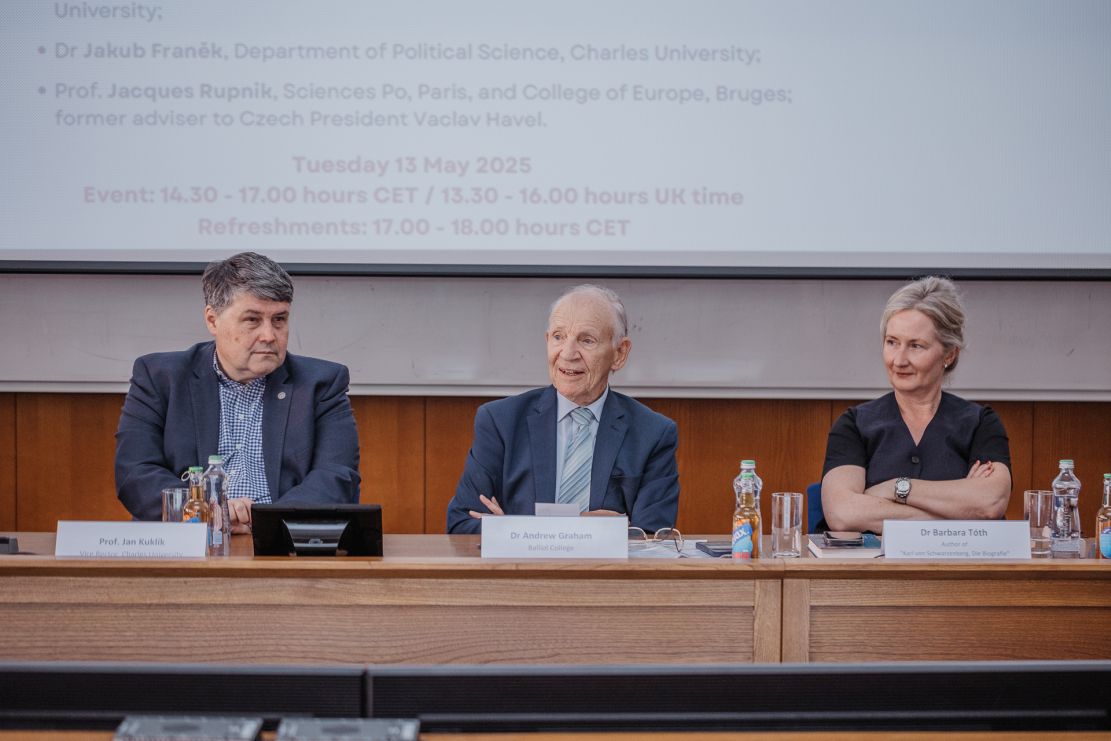
The Vice-Rector for Academic Qualifications Jan Kuklík, Dr Andrew Graham of Europaeum and Professor Barbara Tóth were among key speakers.
Other speakers on the day included Professor Barbara Tóth (the author of Schwarzenberg’s biography in German, who provided extraordinary insight into his Austrian political life), CU scholars Petra Guasti and Jakub Franěk, as well as CU Vice-Rector for International Affairs Eva Voldřichová Beránková and Vice-Rector for Academic Qualifications Jan Kuklík. The event was deftly chaired by Dr Andrew Graham, Chair of Trustees of the Europaeum, which—together with Charles University—organised the gathering.
All knew Schwarzenberg at key points in his life but only his closest friends, said Mr Žantovský, were allowed to call him by his nickname, Kari. One of the most touching moments during Tuesday’s conference was when Schwarzenberg’s adult daughter, Lila Morgan-Schwarzenberg, addressed attendees and speakers, saying her son had just completed his Bachelor’s thesis on the Prague Spring—and had read work by most of the guests present.
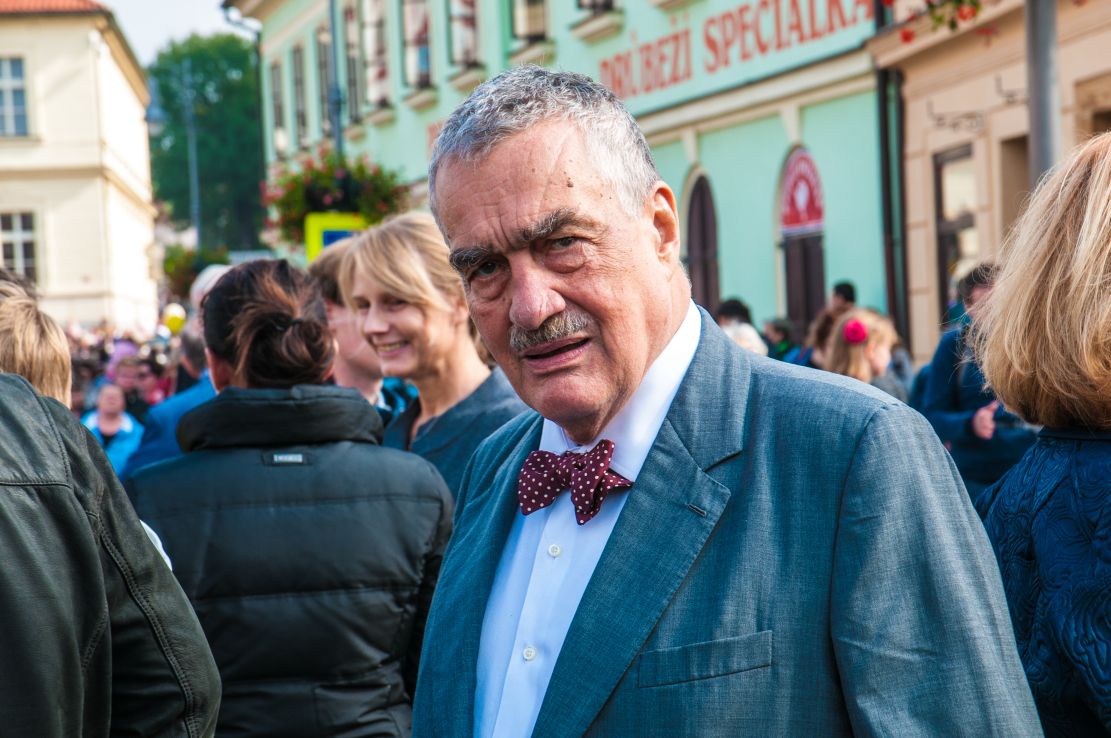
A politician unlike any other: the late Karel Schwarzenberg. Photo: Shutterstock.
A dedication to human rights
Throughout his life, Schwarzenberg was a man of striking contrasts. Born into a prominent noble family, he could have easily relied on his heritage, but instead spent much of his life fighting for the values of freedom and human dignity. His family was steadfastly loyal to Czechoslovakia, resisting the Nazi occupation during WWII and supporting the country’s sovereignty. After the Communist putcsh in 1948, the Schwarzenberg family went into exile to Austria.
During the 1980s, Schwarzenberg became deeply involved in human rights work. As president of the International Helsinki Committee for Human Rights from 1984 to 1991, he was instrumental in supporting dissidents and challenging oppressive regimes behind the Iron Curtain and beyond. His commitment to human rights, both through direct action and long-distance advocacy, became a defining aspect of his public life—and a cornerstone of his long friendship with dissident playwright Václav Havel. Žantovský, Rupnik, and Garton Ash (in a pre-recorded message) all described Schwarzenberg in similar terms and reached a similar conclusion: in his unique background, dedication, spirit, and deep historical knowledge, he embodied, more than anyone else, what it meant to be “Central European.”
After the revolution, party politics, foreign ministry
After the fall of communism, Schwarzenberg returned to Prague, where he became Chancellor to Havel at Prague Castle. His involvement in the country’s post-communist transformation was both steadying and inspiring. He was a consistent supporter of civil society, including independent journalism and NGOs that promoted democratic values—values that later came under attack from less principled political opponents.
He first served as Foreign Minister in the government of Mirek Topolánek from 2007 to 2009. After this experience, he co-founded the centre-right political party TOP 09 in 2009. When the party finished a strong and unexpected third in the 2010 parliamentary elections, he again became Foreign Minister in the centre-right government, continuing his advocacy for democratic principles even as political dynamics shifted. Radio Prague was the first English-language outlet (at 05:22) to interview him just moments after exit polls were released: “I think it is a very good message that voters didn’t choose any extremists in their frustration, it is good that they chose a responsible party,” he said. Asked whether his party would be part of a centre-right coalition, he joked: “We need a coalition willing to carry through reforms the country needs. Whether it is centre-right or up or down, that is not so interesting!” he added with his characteristic smile.
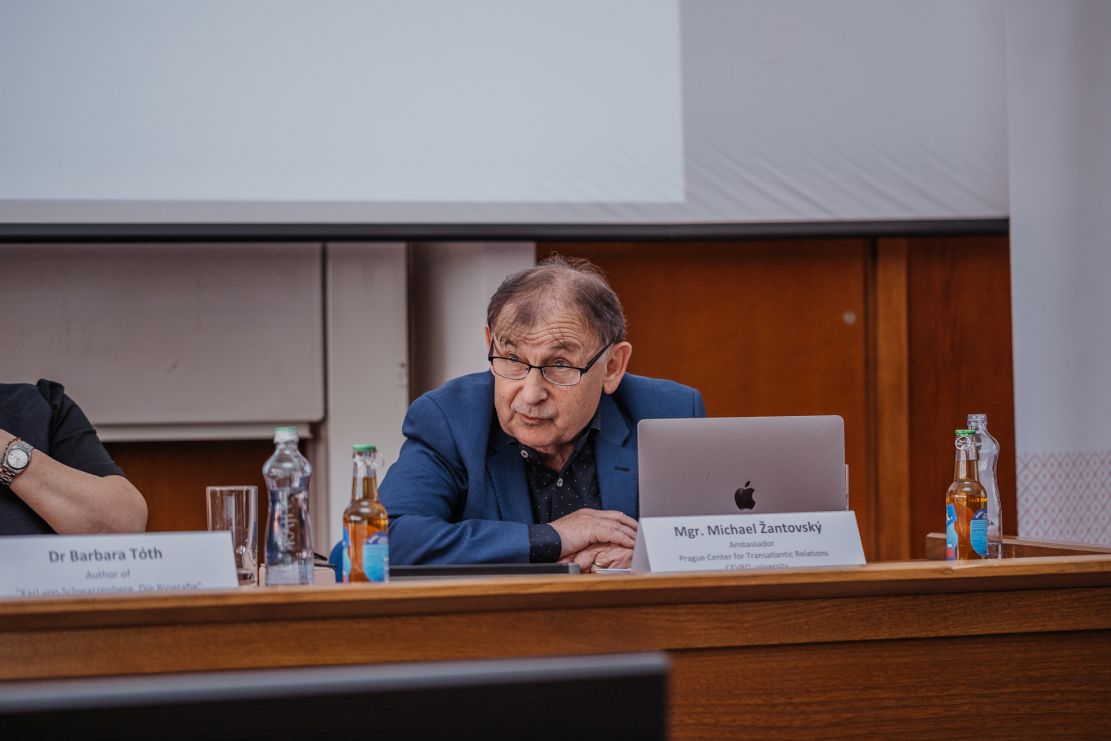
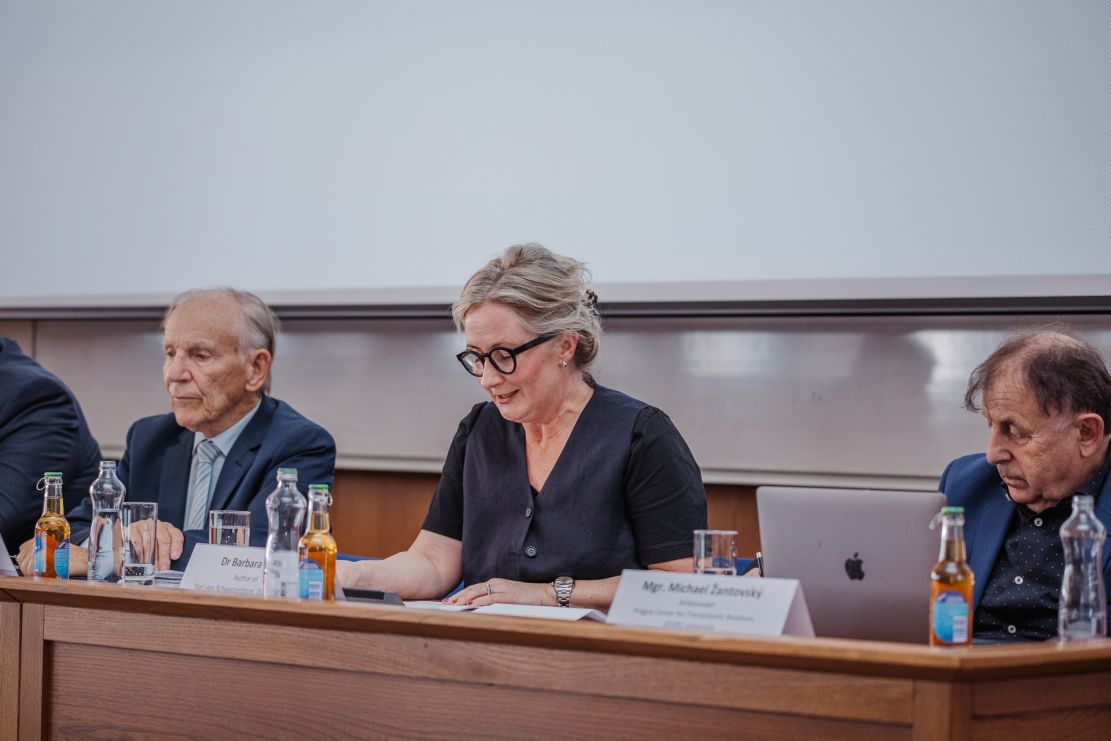
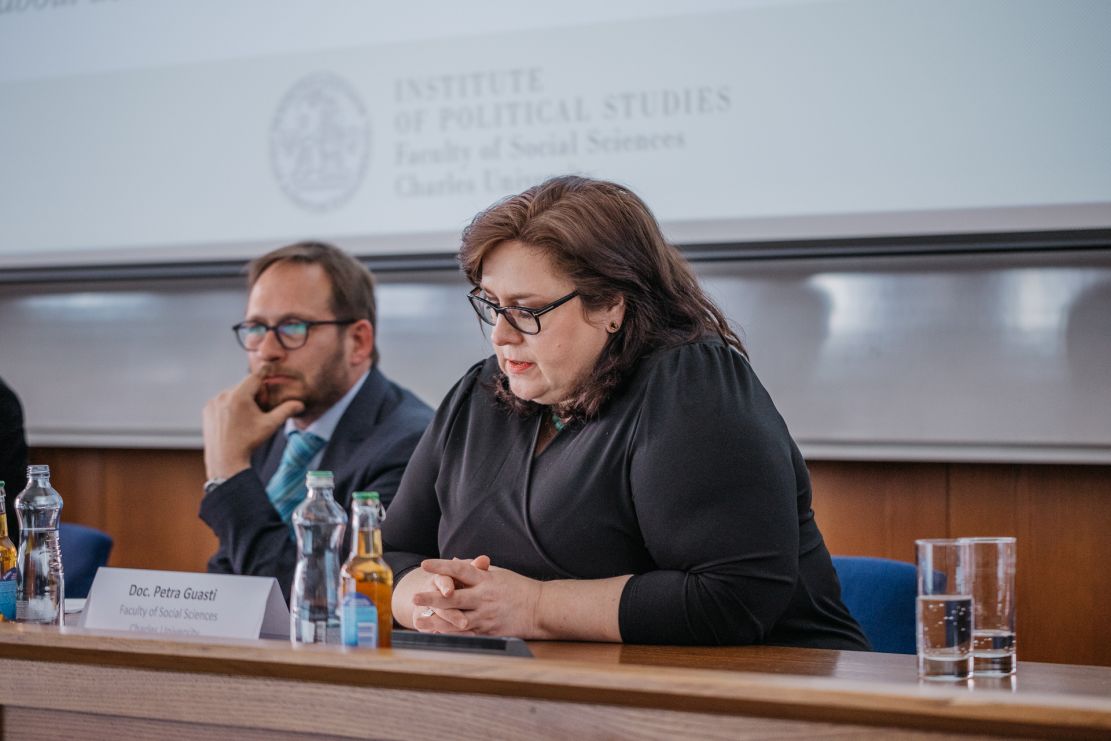
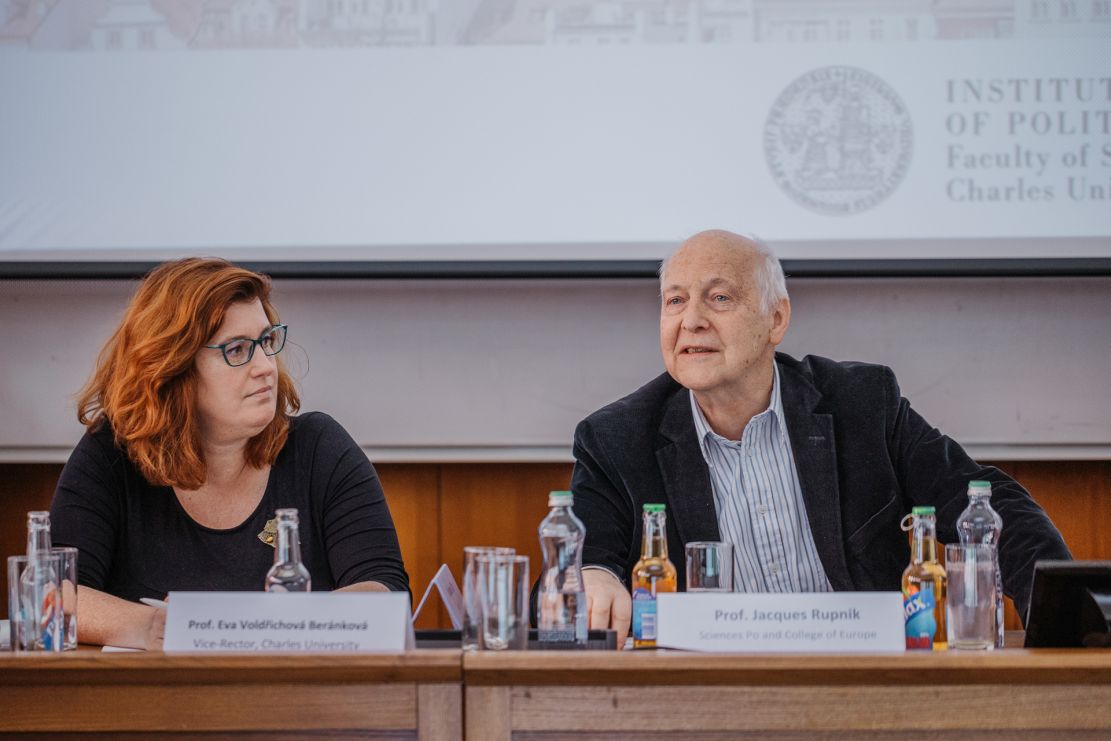
From top/bottom left to right: Michal Žantovský, Barbara Tóth, Jakub Franěk and Petra Guasti, Eva Voldřichová Beránková and Jacques Rupnik.
Mudslinging versus an ethical approach
Schwarzenberg’s unique background and position were later targeted during his 2013 presidential bid, the victim of smear tactics which at the time were still newer to Czech politics. Outgoing president Václav Klaus, along with Schwarzenberg’s opponent Miloš Zeman and their teams, worked to undermine his position—trying to frame him as an outsider, a “German-speaking aristocrat,” despite his fluent Czech and decades of public service to the Czech Republic. Zeman ultimately won, ushering in an era of blunt personal attacks and populist politics. Many political scientists, including Petra Guasti, say Schwarzenberg’s principled stance is exactly what is lacking today:
“Karel Schwarzenberg was a multi-faceted man, as we heard, and I think his legacy is equally nuanced. Now, with politics being driven increasingly by fear and division, we need positive role models. For our students and for ourselves he was exactly that. He was not perfect but he was a man of conviction and the core of his focus was democracy and responsibility—and that is, I think, something that we need today.”
The 2013 presidential campaign was remarkable in another way. Schwarzenberg was depicted with a punk-style pink mohawk (credited to influential Czech artist David Černý). This striking image helped the then-75-year-old candidate connect with a younger demographic searching for a leader who could balance seriousness with authenticity. Schwarzenberg’s ability to laugh at himself, alongside his unwavering commitment to democratic values, earned him support across a broad spectrum of voters.
Sometimes sleepy, always alert
At the conference at Charles University, speakers reflected not just on his politics but also on his distinct personal style. Known for his wit and methodical approach, he was also infamous for his habit of dozing off during drawn-out meetings, only to wake up at exactly the right moment to contribute something meaningful. “He always knew when to wake up and say something clever,” one participant quipped. Former ambassador Michal Žantovský recalled that this habit dated back to the earliest days of post-revolution politics:
“We went on Havel’s triumphant tour and heard some of his historic speeches abroad from the first row and I would look over and after the first line he was already asleep. But then I noticed one thing. Even though he was asleep, he still clapped in all the right places! I later asked him how he did it. He replied: ‘Well, in our family we have known how to do that for 700 years! You cannot survive without it!’ So this was Kari…”
Schwarzenberg’s quip “When they talk nonsense, I sleep,” became emblematic of his attitude toward the more far-fetched moments of political interpellation and grandstanding. Yet, as many attested, he always seemed to wake up precisely when something important was being said.
Tuesday’s event underscored that Schwarzenberg’s political style was never about spectacle. His career in public service was marked by quiet consistency and an unyielding commitment to principle—even as political winds shifted and pressure mounted to side-line human rights in favour of expediency and economic priorities. In today’s climate of renewed global uncertainty, his example remains a powerful reminder of the importance of ethical leadership. His stance on injustice and Putin’s continuing war in Europe, as well as other conflicts, was clear-eyed and never naïve; his outlook on developments, almost two years later, is sorely missed.
Please note: Over the next few days a video recording of the conference will be added so you will be able to experience individual segments or contributions at the conference, for yourself.


